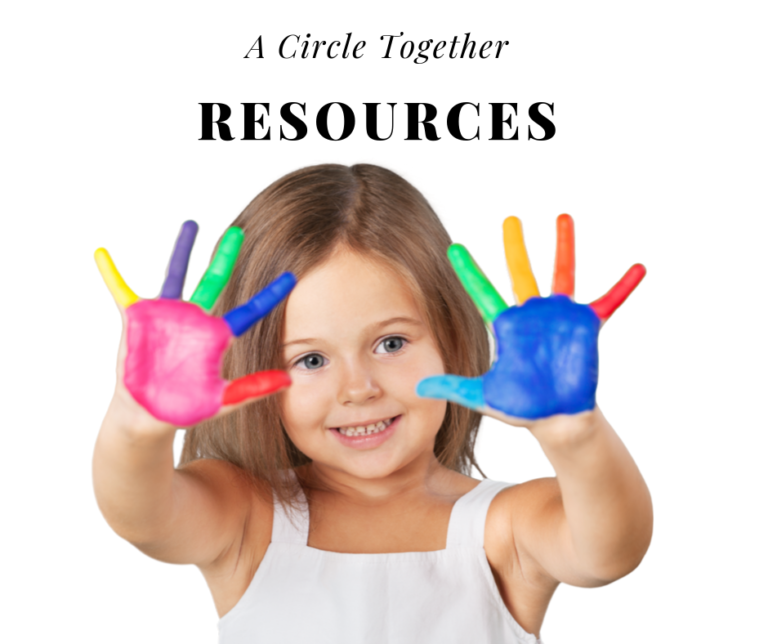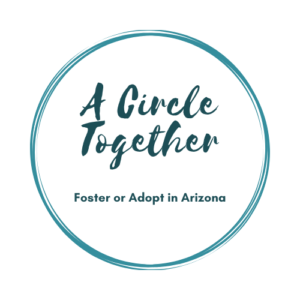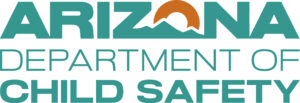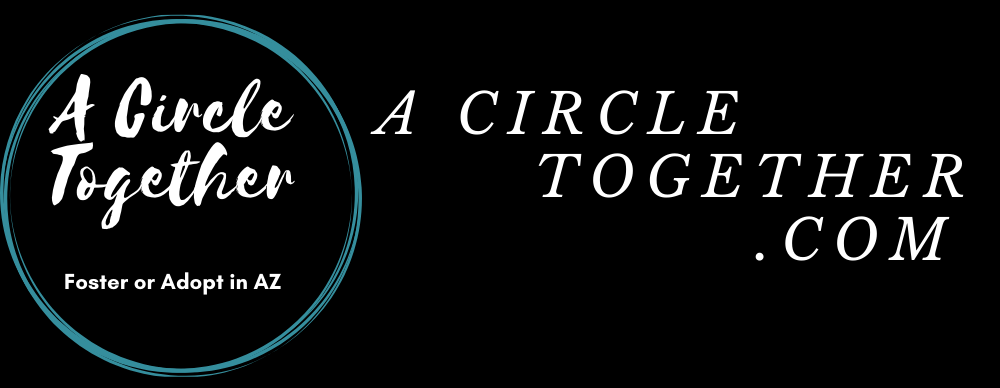
ARIZONA ASSOCIATION FOR FOSTER AND ADOPTIVE PARENTS (AZAFAP)
AZAFAP is a non-profit, statewide membership organization that serves families who adopt, provide foster and kinship. Working in partnership with child welfare professionals and the community, the Association’s purpose is to support, educate, empower and provide a voice for Arizona’s foster and adoptive families, with the goal of increasing the well-being and stability of Arizona’s most vulnerable children. For further information, visit their
website at www.azafap.org.
DCS “WARM LINE’ FOR FOSTER CAREGIVERS
The Warm Line seeks to provide Foster Caregivers with requested information, assistance with authorizations for services, timely communication, and support from DCS. The Warm Line is not intended to take the place or substitute for regular communication between the DCS Specialist and the Foster Caregiver. Call 1-877-KIDSNEEDU (1-877-543-7633) and select Option 3. A Warm Line designee will be available during the
hours of 8:15 am to 4:30 pm Monday through Friday. In addition, the caller will have the option to leave a message 24/7.
DCS Ombudsman: The State Ombudsman may be reached at 602-277-7292 or toll-free 1-800-872-2879. Please see their website for more information: http://www.azoca.gov/complaint-procedure/
PROVIDER INDEMNITY PROGRAM (PIP): RISK MANAGEMENT INSURANCE
This is the State of Arizona provider program that oversees claims for damages caused by children in care. Coverage includes:
• General Liability such as bodily injury, property damage or personal injury resulting from the direct or incidental care of a child in care.
• Damage to Personal Property which includes physical damage or destruction of the real and personal property. However, the damage must actually be caused by the child in care. Coverage is provided on a replacement cost less depreciation basis for the loss of or damage to real or
personal property as a result of the child in care’s actions. A Significant Incident form is to be completed. Please call or go to the web site for exclusions of coverage and more detailed information. To file a claim, contact them at 602-542-2180. For more information about the Provider Indemnity Program (PIP) administered by Risk Management, please refer to their informational brochure at http://bit.ly/AZDCSPIP
ARIZONA FRIENDS OF FOSTER CARE FOUNDATION
The AFFCF is a non-profit charity organized to promote the self-esteem and enrich the lives of Arizona’s children in care by funding activities, education, and other needs to provide them with quality experiences while they live through difficult circumstances. An application must be submitted and the receipts must be provided as they provide grants for items that are not funded by State or other programs, including:
• Little league, soccer, football, and other team sport fees, shoes, and uniforms
• Sports lessons, equipment, and league fees
• Dance and music lessons
• Musical instrument rentals and purchase (after a minimum of 1 year of rental)
• Sports and other lesson renewals up to one year
• Bicycles (with lock and helmet)
• Roller blades, pads, and helmet
• Theme park admission ticket, plus $20 spending money, up to a maximum of $180 per child per trip.
• Class trips
• Letter jackets
• Prom clothes, tickets, and photos up to a $300 maximum
• Graduation clothes for graduations other than high school, and high school graduation clothes for children
on independent living who do not receive DES graduation monies
• Post-secondary education and training
• Apartment set-ups, Requests for assistance from Arizona Friends of Foster Children Foundation will need the signature of the DCS Specialist. The Kinship Caregiver can complete the application. To learn more about the Foundation and to complete an application, go to their website at http://affcf.org or call 602-252-9445.
THE DES/DIVISION OF DEVELOPMENTAL DISABILITIES (DDD)
DDD provides needed supports to children and adults who meet the following eligibility requirements:
• A strongly demonstrated potential that a child under the age of six years is developmentally disabled or will become developmentally disabled as determined by a test, or:
• A severe chronic disability which is attributable to mental retardation, cerebral palsy, epilepsy or autism which is manifested before the age of 18 and is likely to continue indefinitely and results in substantial functional limitations in three or more areas of major life activity. Please go to http://www.azdes.gov/ddd/ for more information. Should you believe your child in care qualifies for DDD services, please contact your DCS Specialist to discuss the referral.
DES/DDD CHILD DEVELOPMENTAL HOMES (CDH)
Some Foster Caregivers choose to provide care to children who have developmental disabilities and receive services through the Arizona Division of Developmental Disabilities. They also complete the Foster Parent
College and receive an additional 16-20 hours of specialized training prior to licensure. Child Developmental Foster Caregivers must be certified and maintain certification in CPR and First Aid. In addition to foster care,
families licensed as CDH also provide “habilitation” which includes a variety of interventions and training such as special developmental skills, special behavior interventions, sensory motor development, alternative and
adaptive communication, self-help skills, physical mobility, personal care and adaptive living skills which are designed to maximize the functioning of children and youth with developmental disabilities. The “habilitation”
is a federally funded service. Furthermore, Child Developmental Homes also have additional rules that guide both the licensing process, care of children in the home, other residents in the home and on the grounds, record keeping, etc.
ARIZONA WIC PROGRAM OR WOMEN, INFANT AND CHILDREN (WIC)
The Arizona Supplemental Nutrition Program for Women, Infants, and Children (WIC) provides nutrition education and breastfeeding support services, supplemental nutritious foods and referrals to health and social services. WIC serves pregnant, breastfeeding, and postpartum women; infants; and children under the age of five who are determined to be at nutritional risk. The WIC Program is funded by the United States Department of Agriculture. WIC is a nutrition program that teaches about eating well and staying healthy. WIC offers foster caregivers:
• Free nutrition supplementation program
• Experts in nutrition for infants, toddlers and preschoolers
• Personalized nutrition tips and support for Foster Caregivers
• Referrals to other community resources
• Healthy foods and recipes
WIC nutrition educators will work with Foster Caregivers to learn about building trust with the child due to trauma, infant feeding guidelines, benefits of creating family mealtime, how to handle picky eaters, child involvement in meal preparation, and much more.
BOY’S AND GIRL’S CLUB MEMBERSHIP
The Boy’s and Girl’s Clubs offer free, after school services to children in care 6 to 18 years old. Use your child’s CMDP card for membership enrollment. Additionally, check with B&G’s Clubs for Vacation Day Camps, Sport’s
Leagues and Young Champions, which include; Pom and Cheer and Karate. Check with your local clubs to see if they participate. There may be fees and other costs required for the child to participate in some programs.
RAISING SPECIAL KIDS
Raising Special Kids provides information, training, resources, and support to families of children with disabilities and special health care needs in Arizona. Parent-to-Parent support has always been the heart of Raising Special Kids. Each year, families are connected with veteran “mentor” parents who have walked a similar path, and who understand the challenges of raising a child with a disability or special health care need. Staff assist families in identifying and locating appropriate resources. Workshops offer training in a variety of skills including advocacy, effective communication and collaboration techniques. Workshops are available for families to aid in acquiring skills and information beneficial to parenting children with disabilities or special health care needs. RSK work hard to provide our workshops to families at no cost. Raising Special Kids provides training and consultation in special education to families, schools, teachers, and other professionals; provides families with assistance in navigating health care systems. Contact at them at 602-242-4366 or 1-800-237-3007 or at their website: www.raisingspecialkids.org.
MIKID
(MENTALLY ILL KIDS IN DISTRESS)
MIKID provides help and support to families in Arizona with behaviorally challenged children, youth and young adults. MIKID offers information on children’s issues, Internet access to parents, referrals to resources,
educational speakers, support groups, holiday and birthday support for children in outof-home placement and parent-to-parent volunteer mentors. Contact them at (602) 253-1240 or (520) 882-0142 or 1-800-356-4543 or
their website www.mikid.org
NAMI ARIZONA (NATIONAL ALLIANCE ON MENTAL ILLNESS)
NAMI Arizona has a statewide HelpLine for information on mental illness, referrals to treatment and community services (though remember foster children must receive behavioral health services though the Regional
Behavioral Health Authority), and information on local consumer and family selfhelp groups throughout Arizona. NAMI Arizona provides emotional support, education, and advocacy to people of all ages who are affected by
mental illness and their families. Contact them at (602) 244-8166 or (800) 626-5022 outside greater Phoenix or their website www.namiaz.org.
THE Q LINE
The Q Line is a 24 hours support helpline for LGBT (Lesbian, Gay, Bisexual, Transgender) youth and allies. It is unique in that it is a clearing house for support services in AZ. It is based out of La Frontera Empact, 800-527-
4747 or local 480-736-4925. Ask them for location resource information.
PFLAG (PARENTS, FAMILIES AND FRIENDS OF LESBIANS AND GAYS)
PFLAG is a national support, education and advocacy organization for lesbian, gay, bisexual and transgender (LGBT) people, their families, friends and allies. PFLAG has chapter helplines, support group meetings and resources. PFLAG educates families and communities on sexual orientation, gender identity and LGBT issues. PFLAG is a non-profit organization and is not affiliated with any religious or political institutions. http://www.pflagarizona.org provides information on the fourteen PFLAG chapters around AZ.
TRANS YOUTH FAMILY ALLIES (TYFA)
TYFA is a national organization to empower children and families by partnering with educators, service providers and communities, to develop supportive environments in which gender may be expressed and
respected. It is an internet support and education site for transgender children and their families. Check their website imatyfa.org for Arizona information.
COMMUNITY RESOURCES
• Free or Reduced Cost City Programs: Check with your local Parks and Recreation to see if they offer free or reduced cost programs.
• Free or reduced membership to the YMCA, check with your local facility.
• Arizona 2.1.1
• For additional resources please call the Warm Line at 877-543-7633 option 3.
• Free children’s clothes, furniture and personal articles may be available through community charitable or church organizations. Please check with your local churches, civic groups or charitable organizations.


